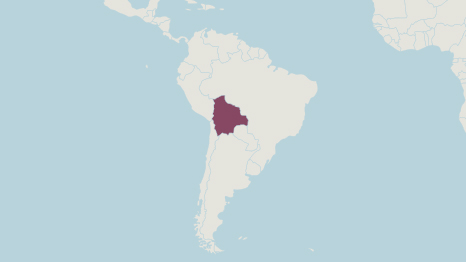STEM education in Bolivia
Life-long learning is Bolivia’s top priority in its Education Agenda 2025. It envisions children and adolescents learning to understand and protect their environment, to respect “Pacha Mama” (Madre Tierra), and to help shape the future of their communities and their country.
OverviewEducation in Bolivia
Alongside top-line issues such as the environment and climate protection, supporting indigenous peoples is a high priority in plurinational Bolivia. Appreciation for indigenous cultures and languages has significantly increased in recent years, and self-awareness among indigenous ethnicities has grown as well. Given the precarious situation caused by water shortages in the country, addressing socio-economic and ecological issues is a matter of survival. Education for sustainable development is important to increase awareness for the careful use of water and other resources. STEM education helps build knowledge and skills, including the ability to solve problems using technology.

- Two-tier school system: Primary school (Escuela primaria: 8 years), secondary school (Escuela secundaria: 4 years)
- Education budget: 7.3 % of GDP (2014)
- WEF Ranking Maths and Science: 125 of 140 (2016)
- Important topics: Implementing Education Agenda 2025 and a “socio-communal-productive education” model
EngagementOur Engagement in STEM
By working with local institutions and the Deutsche Gesellschaft für Internationale Zusammenarbeit GIZ (German Society for International Cooperation), Siemens Stiftung aims to attract young people to science and technology, build up their STEM skills, and spark an interest in university studies or vocational training in a STEM field. All activities are in line with Bolivia’s national “Agenda 2025.”
International educational program Experimento
Since 2017, we’ve been actively involved in supporting sustainable development in Bolivia with our education program Experimento. Thanks to close collaboration with the Universidad Pedagógica and local education institutions, Experimento has been adapted to Bolivia’s education system and integrated into the university curriculum for teacher training. The goal is to create a link between scholastic learning and communal cohesion. Concepts such as contextual understanding, problem identification, and working toward solutions are critical, especially when it comes to sustainable development.
Collaboration with Deutsche Gesellschaft für Internationale Zusammenarbeit (GIZ)
We work with GIZ on health and hygiene education as part of the organization’s focus on “Drinking water supply and wastewater management.” Our education program Experimento has been expanded to include new teaching and learning materials for these subjects. In addition, certain schools in pilot regions are conducting campaigns that increase students’ awareness about hygiene. Improvements to the sanitary infrastructure of these schools are carried out by the local government.
Red STEM Latinoamérica
Since 2011, Siemens Stiftung has supported teachers and educators in eight Latin American countries with the foundation’s international education program Experimento, aiming to increase understanding in STEM subjects for children and young people and to awaken their interest in scientific and technological interrelationships. The Spanish website Red STEM Latinoamérica provides a comprehensive overview about the project and supports networking activities by individual stakeholders. Since 2020, you also find there a collection of about 500 open educational resources (OER) specifically designed for Latin American Schools.







